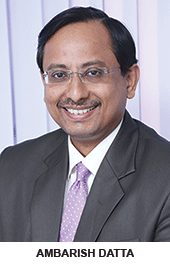 Albert Einstein once said the hardest thing to understand in the world is income tax. This may not have been true earlier, but it’s certainly true now.
Albert Einstein once said the hardest thing to understand in the world is income tax. This may not have been true earlier, but it’s certainly true now.
Take the case of education cess. Some readers may recollect that the education cess was introduced a decade ago in 2004, as a tax imposed on the total income tax payable by assessees. As such, it became India’s first tax on tax. In his budget speech, the then finance minister of the Congress-led UPA-I government said the Rs.4,000-5,000 crore collected annually would be spent exclusively for education, including the Union government’s nationwide cooked mid-day meal for over 120 million children in government primary schools.
A decade later, this is a good time to assess the impact of the special education cess imposed on the country’s 35 million income tax assessees. Certainly, the proposition to impose a dedicated cess to fund elementary education is not devoid of merit. After all, India hosts the world’s largest child population of 480 million and also the largest number of out-of-school children. A cess collected to incentivise children to attend school through provision of mid-day meals and funding new greenfield primary-secondaries was a commendable idea.
Secondly, the government created a non-lapsable fund titled Prarambhik Shiksha Kosh and agreed to transfer all the cess proceeds to this fund. The government also announced two schemes viz, Sarva Shiksha Abhiyan (SSA, elementary education for all) and the free mid-day meal, as its flagship programmes.
Another initiative was launched several years later. In addition to the 2 percent cess, an additional 1 percent cess was imposed as a surcharge in 2007-08 to fund secondary and higher education. This cess was imposed to fund expansion of capacity by 54 percent in all institutions of higher education, required to provide an additional 27 percent quota for OBCs (other backward classes) in institutions of higher education (i.e. in addition to 22 percent reserved for scheduled castes and tribes) without adversely affecting the merit quota.
A decade after the cess was introduced, it is imperative to review the impact it has made so far.
For a start, it’s noteworthy that the aggregate amount collected by way of education cess since 2004 is a substantial Rs.216,320 crore. Of this amount, Rs.129,596 crore has been collected during the past five years. In addition, Rs.23,062 crore has been collected by way of the secondary and higher education cess.
Nevertheless despite a widely reported deficit in primary/elementary education learning outcomes, the cumulative unspent amount between 2011-2014 aggregated a substantial Rs.32,018.23 crore. The cumulative unspent amount since the year 2004 is reportedly even greater. This in spite of a rapid decline in budgetary support for funding primary and secondary education during the past few years.
One of the causes of the unspent education cess is that under the SSA scheme, states have to contribute at least Rs.25 for every Rs.75 spent by the Centre. States such as Bihar, UP, Jharkhand and West Bengal have struggled to pay their share. Ironically, these are the very states where the need for quality primary education is most pressing.
A good idea would be to deploy the unspent amounts for teacher development. Lack of adequately trained teachers is a major contributory cause of poor learning outcomes and high dropout percentages. Promoting model teacher training centres at district and block levels can help build capacity and also develop teachers who make classes interesting.
In addition, the unspent money can be used to establish vocational skill centres at multiple levels. Introducing skills education in schools should be an urgent national priority to ensure that children who go through the primary education system learn at least one trade which can open up employment or entrepreneurship opportunities. Currently, minimal skills education is delivered in the country’s 1.40 million schools.
Cess funds collected can also be used to establish a skills development fund to help students who complete primary education but cannot study further due to external factors. Such students can seek scholarships from this fund to learn one key skill. This will incentivise them to pursue a career built on basic primary education but topped up with a specific skill which can either lead to wage employment or sustainable livelihood opportunity.
Education in India formally became a fundamental right after enactment of the Children’s Right to Free & Compulsory Education Act, 2009. Yet, it’s a tragedy that in spite of collection of a dedicated tax for education, according to the 2013 UNDP data, Indian children receive a mere 4.4 mean years of schooling, less than in Sri Lanka, China, Pakistan and even Bangladesh.
The story of the education cess provides clear evidence that imposing additional taxes upon citizens doesn’t help unless a mechanism to implement the programmes for which the cess was imposed in the first instance, is developed simultaneously.
(Ambarish Datta is MD & CEO of BSE Institute Ltd and founder-director of the BFSI sector skill council, a PPP promoted by industry and NSDC)